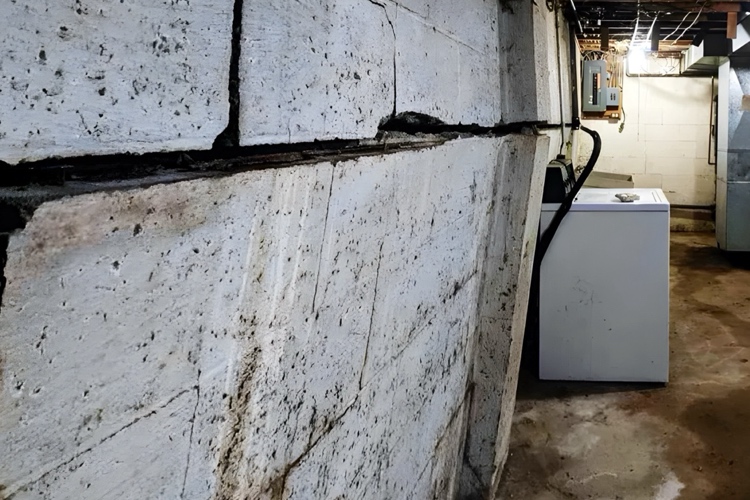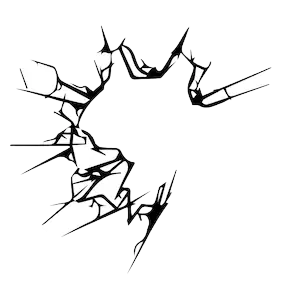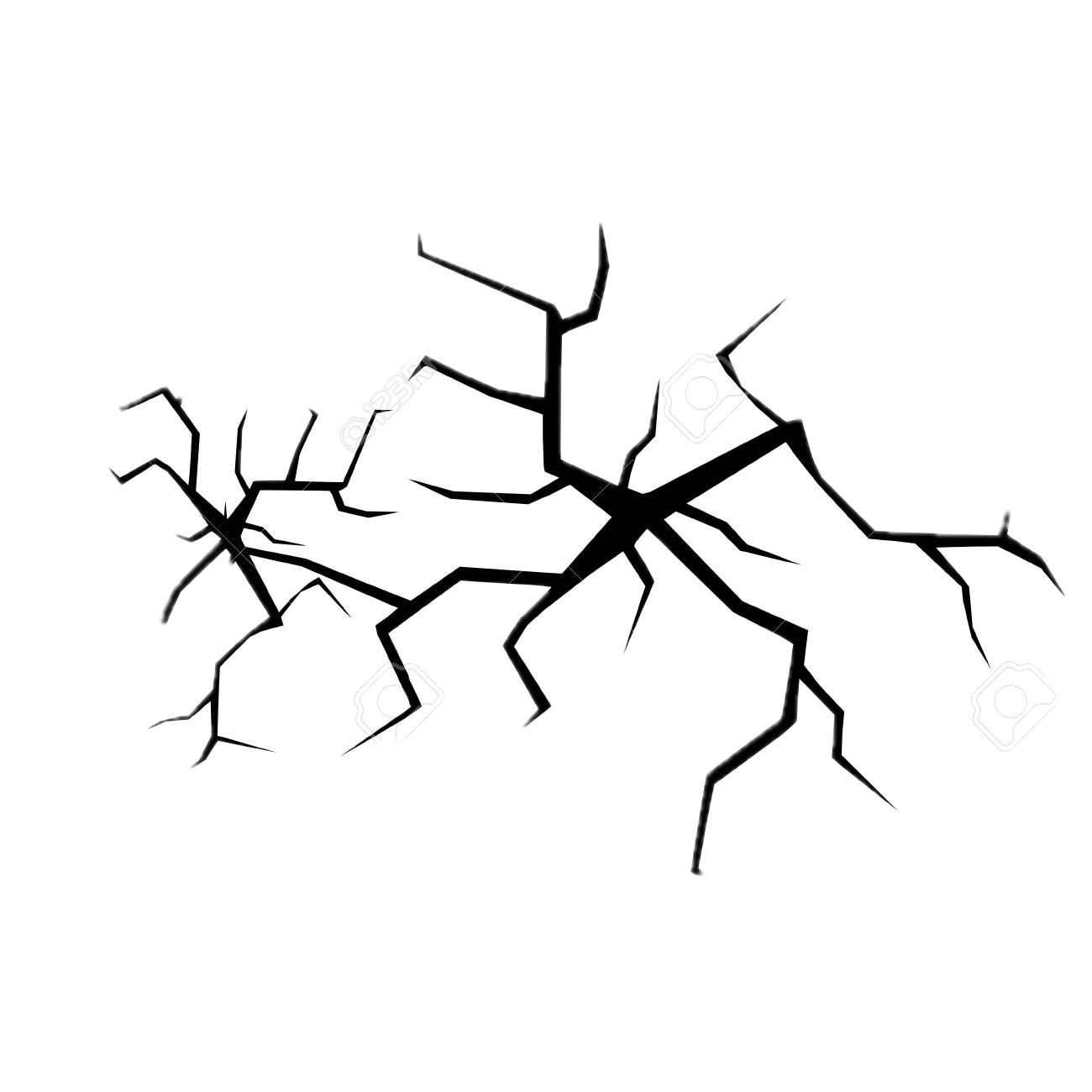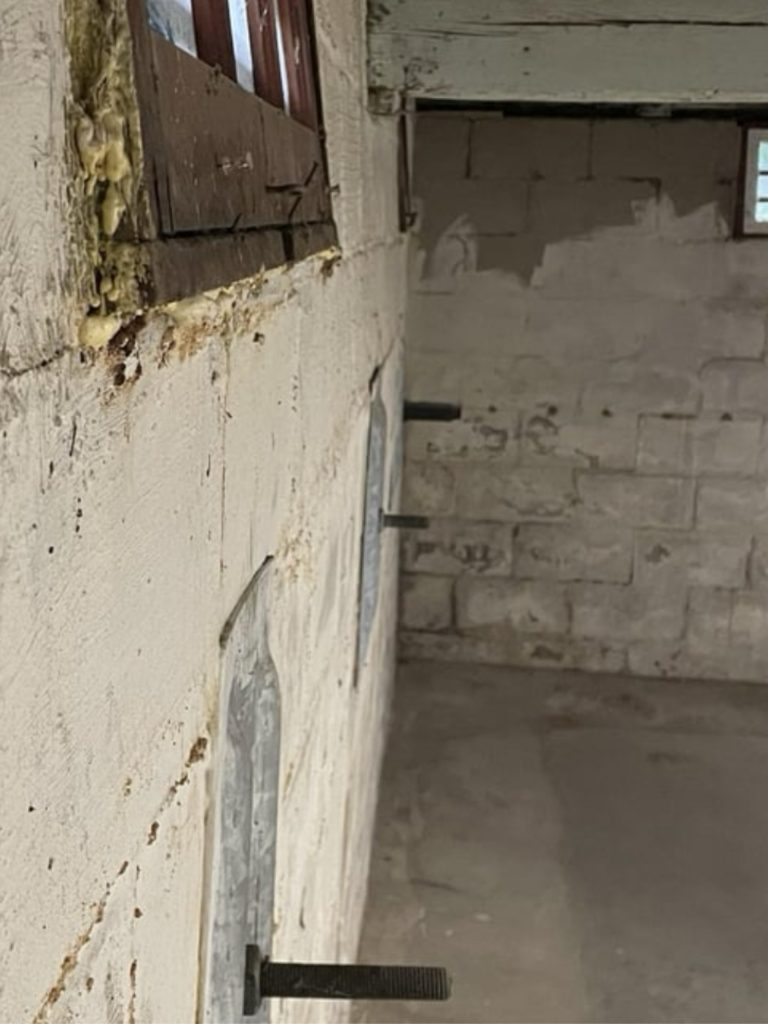Bowing Foundation Walls: What They Are and Why They Matter
When your walls start to lean in, it's a sign something beneath the surface is pushing back. Bowing foundation walls occur when excessive pressure builds up in the soil surrounding your home. This inward curve or bulge isn’t just a visual issue—it can be a serious threat to your structure’s stability.

Structural Integrity:
Bowing walls are a warning sign that your foundation is weakening. Without timely intervention, this can lead to cracks, displacement, or even total failure of the wall.
Water Intrusion:
As the wall bends, it often cracks—allowing groundwater to seep inside. This leads to moisture buildup, musty odors, and potential mold growth in your basement.
Safety Concerns:
In extreme cases, severely bowed walls can collapse, posing real safety risks to everyone inside the home. Catching and correcting the problem early is critical.
Common Causes of Bowing Foundation Walls
Knowing what causes walls to bow helps us stop it at the source.
These problems often build up slowly from environmental pressure, moisture, or soil movement—but they can be permanently solved with the right support system.

Expansive Clay Soil
Swells when wet, shrinks when dry—pushing and pulling on your foundation repeatedly.

Hydrostatic Pressure
Water buildup in soil creates pressure against basement walls, especially after heavy rain or snowmelt.

Heavy Exterior Loads
Parking pads, patios, or backfill too close to the house can add unnecessary weight and stress.

Frost Heave
Cold climates cause the ground to freeze and expand, pressing hard on the foundation walls.
Signs You May Have Bowing Foundation Walls
You might not notice the curve until it’s serious—here’s what to look for.
These warning signs often appear slowly, but they’re early alerts that your foundation may be under pressure.

Inward bulge or curve in the basement wall

Long horizontal cracks across the wall

Stair-step cracks in brick or block walls

Water stains or damp patches on interior basement walls

Windows and doors that stick or drag when opening
Potential Risks of Ignoring Bowing Walls
A bowed wall never fixes itself—waiting leads to higher costs and more risk.
What begins as a minor lean or crack can turn into a structural disaster if ignored too long.

Foundation failure or wall collapse

Interior water damage and basement flooding

Mold, mildew, and poor air quality

Decreased home value or failed inspection reports
How We Fix Bowing Foundation Walls
Modern solutions engineered to stop wall movement and reinforce your home.
At The Foundation Guys, we customize our repair approach based on the severity of bowing and soil pressure around your home.

Carbon Fiber Straps
Ultra-strong and nearly invisible, these work best on early-stage bowing (under 2") to halt further movement.

Wall Anchors
Installed underground, these pull your wall outward to stabilize and possibly straighten it over time.

Helical Tiebacks
Screw-like rods installed deep into stable soil, applying reverse pressure to correct the bow.

Steel I-Beams
Installed vertically from floor to ceiling for immediate support—ideal for walls already showing significant movement.
How to Prevent Bowing Walls from Returning
Stabilization is only step one—keeping your foundation dry and pressure-free is just as important.

Grade your yard to slope away from the foundation

Keep gutters clean and extend downspouts at least 6 feet

Don’t park vehicles or place heavy loads near foundation walls

Install French drains or other drainage systems if needed

Maintain Gutters & Downspouts:
Clean and extend them to move water away from the base of your home.

Regrade Your Yard:
Make sure your lawn slopes away from your foundation—not toward it.

Avoid Large Trees Near Foundation:
Tree roots displace soil and create uneven pressure around your home.

Install Drainage Solutions:
French drains, sump pumps, and gravel trenches can all help keep water in check.
How to Prevent Future Cracks
Good drainage and smart landscaping go a long way.

FAQs That Dig into the Details of Bowing Walls
Any visible bowing is a sign your wall is under structural stress. It may not collapse tomorrow—but the longer you wait, the worse (and more expensive) it gets.
The most common cause is pressure from saturated soil—often from poor drainage, heavy rainfall, or expansive clay around the home.
If the crack is widening, leaking, or spreading in a stair-step or horizontal pattern, it’s time to take action. Other signs include bowing walls, damp spots, or musty odors in your basement.
Some solutions (like carbon fiber straps) are interior-based. Others, like wall anchors, involve work on the outside too. We recommend a solution that addresses both structure and soil.
Stopping the bowing protects your wall—but for full waterproofing, we’ll often combine structural repairs with drainage or sealing options.
Most repairs take a week depending on the method. Our team handles everything—from excavation to final wall support.
Homes Secured
Successful Projects
Years of Experience
Specialized Services
Trusted Locally. Built Personally.
Proudly serving Colorado with foundation solutions tailored to your home.
© 2025 The Foundation Guys. All Rights Reserved.
- Privacy Policy
- Terms & Conditions
- Accessibility

Book Your Appointment Today!
Complete this form to have a The Foundation Guys representative reach out to you today.
By clicking submit, you agree to receive marketing and informational calls and texts, including autodialed or prerecorded calls/texts, to the telephone numbers that you provide, including any mobile number, from or on behalf of The Foundation Guys. Consent is not a condition of purchase. Message and frequency may vary. Message and data rates may apply. Text HELP for help and STOP to unsubscribe. For more information, please review our Privacy Policy and Terms and Conditions.
